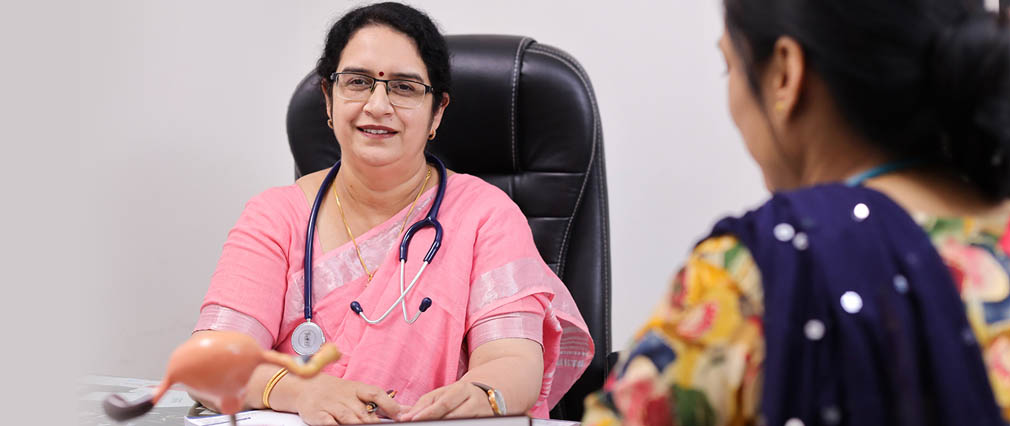
Uterine Polyps: Diagnosis and Treatment at Meerut Gynaecologist
Uterine polyps, also known as endometrial polyps, are small, benign growths that develop on the inner lining of the uterus (endometrium). These polyps are usually attached to the uterine wall by a thin stalk or a broad base and can vary in size from a few millimeters to several centimeters. Uterine polyps are common among women in their 40s and 50s but can occur at any age.
While many uterine polyps are asymptomatic, they can sometimes cause irregular menstrual bleeding, heavy periods, or infertility. Understanding and addressing these growths is essential for improving reproductive health and quality of life.
Causes of Uterine Polyps
- Hormonal imbalances, particularly excessive estrogen levels, which stimulate the growth of the uterine lining.
- Chronic inflammation of the uterine lining (endometritis).
- Conditions like obesity or hypertension, which may increase the risk of polyp formation.
Symptoms of Uterine Polyps
- Irregular menstrual bleeding, such as spotting between periods or prolonged periods.
- Heavy menstrual bleeding (menorrhagia).
- Postmenopausal bleeding.
- Difficulty conceiving in some cases.
Diagnosis and Treatment by Dr. Deepti Dogra at Meerut Gynaecologist
Dr. Deepti Dogra brings years of experience and advanced techniques to diagnose and treat uterine polyps effectively at Meerut Gynaecologist. Diagnostic procedures include:
- Ultrasound Imaging: Transvaginal ultrasound to detect abnormal growths in the uterine lining.
- Hysteroscopy: A minimally invasive procedure where a small camera is inserted into the uterus to visualize and confirm the presence of polyps.
- Endometrial Biopsy: If necessary, a sample of the uterine lining is taken to rule out malignancy.
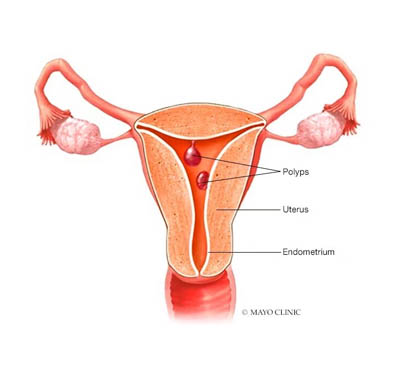
Treatment options include:
- Polypectomy: Dr. Dogra performs hysteroscopic polypectomy, a minimally invasive procedure to remove polyps with precision and minimal discomfort.
- Medication: Hormonal treatments may be prescribed to manage symptoms or prevent recurrence in some cases.
- Fertility Management: For women facing infertility issues due to polyps, Dr. Dogra provides personalized treatment plans to restore reproductive health.
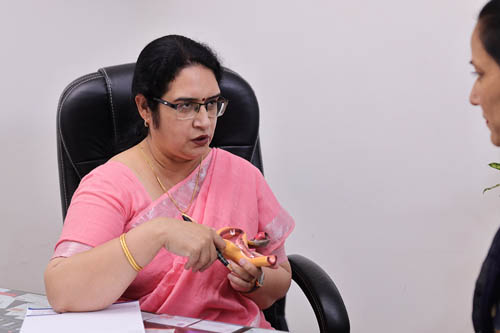
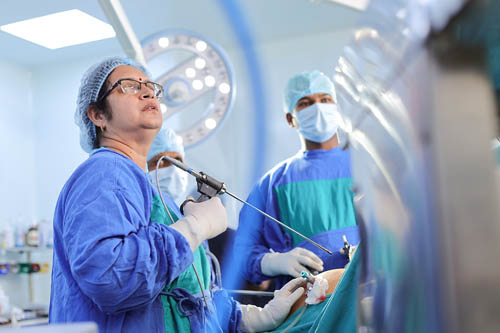
Why Choose Meerut Gynaecologist for Uterine Polyp Treatment?
At Meerut Gynaecologist, Dr. Deepti Dogra offers patient-focused care using the latest technology and techniques. With a commitment to minimally invasive procedures, patients experience faster recovery times, reduced discomfort, and enhanced outcomes.
Take Control of Your Uterine Health Today!
If you’re experiencing symptoms of uterine polyps or irregular menstrual bleeding, don’t delay. Schedule your appointment with Dr. Deepti Dogra at Meerut Gynaecologist and discover compassionate care tailored to your needs. Take the first step toward better health and peace of mind!
FAQs for Uterine Polyp at Meerut Gynaecologist
- Medications: Hormonal treatments to manage symptoms and shrink polyps.
- Non-Surgical Removal: Hysteroscopy to remove polyps and prevent recurrence.
- Surgery: For larger or multiple polyps causing severe symptoms.
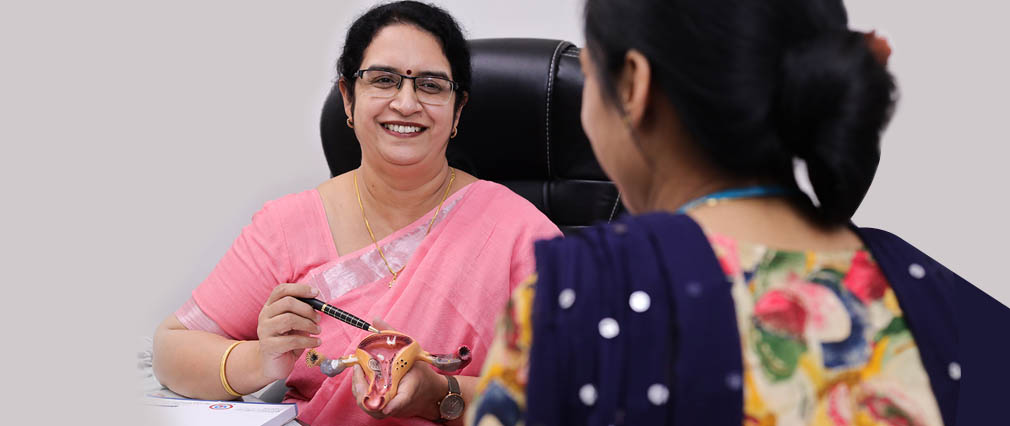
Uterine Septum: Diagnosis and Treatment at Meerut Gynaecologist
A uterine septum is a congenital anomaly where a fibrous or muscular wall divides the uterine cavity partially or completely. This condition occurs during fetal development when the uterus fails to fuse completely, leaving a partition in the uterine cavity. While many women with a uterine septum remain asymptomatic, it can be associated with recurrent miscarriages, infertility, or complications during pregnancy.
The uterine septum is one of the most common uterine anomalies and is often detected during investigations for infertility or recurrent pregnancy loss. Early diagnosis and appropriate treatment can significantly improve reproductive outcomes and reduce complications during pregnancy.
Causes of Uterine Septum
- It is a congenital condition resulting from improper fusion of the two Müllerian ducts during fetal development.
- There are no specific external causes, as this condition is present from birth.
Symptoms of Uterine Septum
- Recurrent miscarriages.
- Difficulty conceiving or infertility.
- Abnormal menstrual cycles in some cases.
- Pain or discomfort during intercourse, though less common.
Diagnosis and Treatment by Dr. Deepti Dogra at Meerut Gynaecologist
Dr. Deepti Dogra is highly skilled in diagnosing and treating uterine septum cases, helping women achieve better reproductive health. Diagnostic methods include:
- Ultrasound and 3D Imaging: Transvaginal ultrasound or 3D ultrasound for detailed visualization of the uterine cavity.
- Hysterosalpingography (HSG): An X-ray technique to assess the shape of the uterine cavity and fallopian tubes.
- Hysteroscopy: A minimally invasive procedure using a thin camera to directly visualize and confirm the uterine septum.
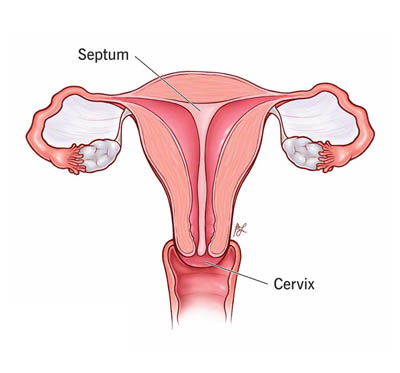
Treatment options include:
- Hysteroscopic Metroplasty: Dr. Deepti Dogra specializes in this minimally invasive surgical procedure to remove the septum and restore the normal shape of the uterus.
- Post-Surgical Care: Hormonal therapies or follow-up imaging may be recommended to ensure proper healing and prevent scarring.
- Fertility Support: After correction, patients receive tailored fertility treatments if needed to achieve successful pregnancies.
Why Meerut Gynaecologist for Uterine Septum Treatment?
Dr. Deepti Dogra’s expertise in advanced hysteroscopic procedures ensures safe and effective removal of the uterine septum, improving the chances of healthy pregnancies. Meerut Gynaecologist is committed to providing personalized care in a supportive environment, helping women overcome challenges with confidence.
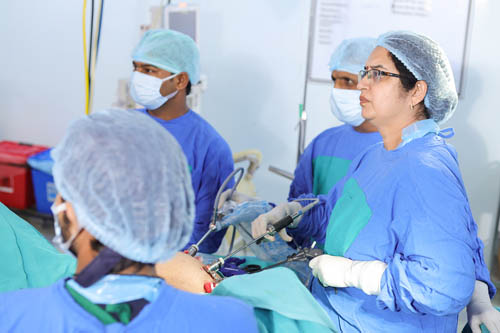
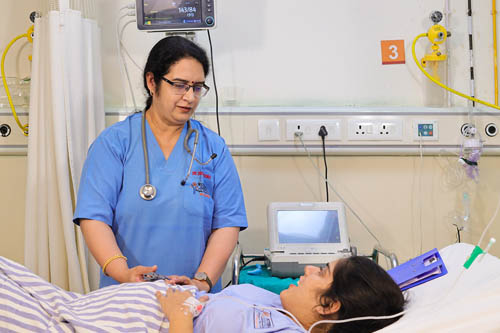
Unlock Your Path to Parenthood!
Struggling with infertility or recurrent miscarriages? Visit Dr. Deepti Dogra at Meerut Gynaecologist and explore advanced solutions for uterine septum correction. Book your consultation today and take the first step toward a healthy, fulfilling pregnancy journey!


